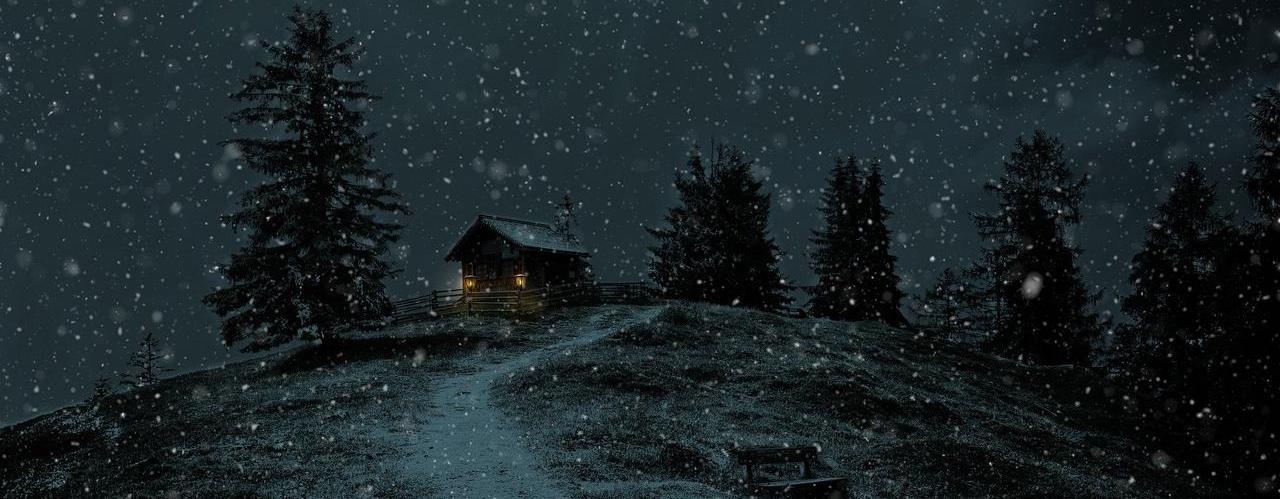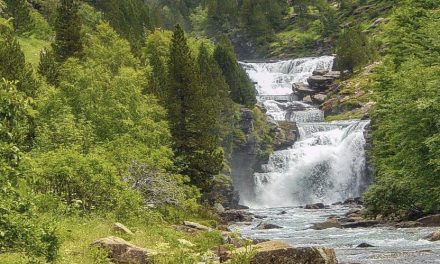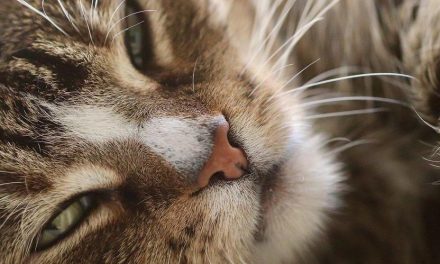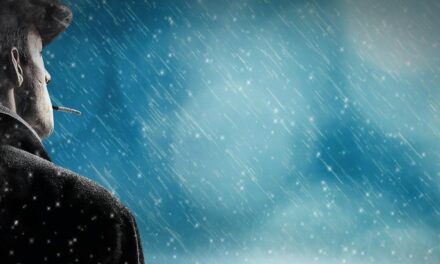Following on the tails of my first foray into 3000 Questions About Me, today I took the time to dive into the second page and answer fifteen more questions about who I am and what I think. As always I haven’t spent any time planning or curating answers to these questions—everything is right off the top of my head, as a way to be as honest as possible.
If you could change one thing about yourself, what would it be? (0016)
I don’t think this is a difficult question to answer, because what immediately comes to mind is my depression. I’ve described before how it can feel like a leaden blanket which drags down all of my experiences, and I like to think I could be a truly amazing person without all that emotional weight. I feel like I’ve lost too many years of my life—too many years of good fun, good people, and satisfying relationships—and I want to see what the rest of my time here could hold if I were able to push past these feelings of fear and self-doubt.
What do you consider your greatest achievement? (0017)
I am going back and forth on the answer to this question, but I think I have arrived at an answer I’m comfortable with—the fact that I wrote a book. I’ve talked about it elsewhere on this blog, but when I think about the number of people who have story ideas, the small percentage who write them down, the small percentage of those who are able to expand it out to more than 40,000 words, the small percentage of those who actually submit their work for editing, the small percentage of those who take the editor’s comments to heart and rework their project, and the even smaller percentage of those who finally submit their work for publication, I realize just how small the company I’m keeping.
Pandora’s Box: A Weak Point between Here and There has been a large triumph, and I am so thankful to all of my friends and family who have given me so much support throughout the process. I know there is a lot of work ahead of me before I ever see my name on store shelves, but that I’ve gotten even this far has been a rousing success, particularly when it has been of my own volition and initiative, rather than something coming from without.
If you were to die and come back as a person or thing, what would it be? (0018)
My mind first goes to all of the existential questions inherent with this prompt—am I still me even after the reincarnation, how would or could an inanimate object be sentient, am I limited to the current time or could I come back at whatever point in time I wished, and so forth—but I recognize that I often overthink things, and so am trying to still those extra queries and assumptions as I work out an answer.
I have long been enraptured with the way David Eddings described the idea of being a wolf in his novel Belgarath the Sorcerer, of why a wizard chose the wolf as his favorite and most go-to form when he needed to change shape. Wolves are so familiar to and yet so far removed from human cultures, I think it would be a fascinating experience to see the world from their viewpoint, particularly in the more remote tundras.
Where would you most like to live? (0019)
Ever since my youth I’ve had a fascination with the idea of living in or near Seattle, Washington. I’m not the most well-traveled across our large country, and have only spent meaningful time in one small part of Europe, but of the places I have been, I like the combination of big-city and small suburb the Puget Sound area has to offer. From the weather to the culture, I appreciate the region much more than I do the California Bay Area, and think it would be fantastic to explore such a large metropolitan area and discover all it has to offer, without the suffocating pressure of a place like New York or London.
That isn’t to say there aren’t many other places I would like to visit, even for extended periods, but I think as far as places to live go, Seattle is where it’s at, for me.
What is your most treasured possession? (0020)
To avoid ephemeral concepts and ideas, I’m narrowing the definition of “possession” to be a physical object. Though I can look around my office at home and see trophies from my youth, old Boy Scout memorabilia, and reminders of my grandparents, I really think my most important possession is this website and all the writing it contains. It’s a living history of not only where I am/was at any given point in time since I started it, but also a repository of my moments of inspiration and story seeds, hopefully beneficial to those who are looking for something to spur them to write and create art of their own. I take regular backups of the site (though probably not often enough) and it means a lot to me that I have this place where I can both publicly and privately—depending on the content—express myself.
What do you regard as the lowest depth of misery? (0021)
I believe the lowest form of misery is whatever pain, fear, arrogance, or discomfort that drives one to belittle, demean, and lash out at others. I argue that it’s the lowest depth because that kind of hurt is insidious, growing to shade so much of a person’s interactions with the outside world and all those therein contained.
What is your favorite occupation? (0022)
Of all the professions I’ve encountered in my life, I have to say that my favorite is that of a story-teller. I still remember my tenth-grade English teacher stalking around the room, telling the tale of an adventurous Inuit hunter, crouched low and really transplanting us to the bitter Arctic. I remember the story-teller in college who recited and demonstrated for us key sections of the Bhagavad Gita, Having the opportunity to share is one of the primary reasons I am drawn to teaching, was drawn to leading my old improvisational troupe, and am drawn to running role-playing games, where I can not only speak to but also interact with others as we discover the lesson, the unexpected directions, or the adventure at hand.
What is your most marked characteristic? (0023)
I actually surveyed some close friends on this one, because I think they would be the best to judge my most marked—or notable—character trait. Overwhelmingly the responses came back that most people described me as thoughtful—in both a positive and negative context. Some said I took words and communication seriously, and thus put a lot of thought into how I interact with others. Others that I live too much within my own head, where overthinking an issue, a problem, or even an opportunity becomes a problem. Along similar lines some called me generous—even to a fault—which I also appreciated hearing. My self-deprecative and sardonic sense of humor was also brought up by several who were asked their thoughts.
It’s probably not a surprise to those who knew me that I wasn’t expecting the positive attributes people ascribed, and in some ways have been very humbled by knowing others’ thoughts on who I am and how I act. Obviously they can’t always know what’s going on inside my head, but they can observe the things I say, what I write, and how I act, and form their own valid opinions. My hope is that I can live up to the—positive—qualities to which they already ascribe to my character and personage.
What do you most value in your friends? (0024)
More than anything I feel the most important trait in my friends is understanding. I appreciate and value the fact that there are multiple viewpoints and different historical, cultural, and economic contexts for almost every issue, and it’s important to me that those with whom I surround myself have a similarly open mind. Not meaning that they’re apt to change their mind necessarily—some of my friends disagree quite strongly with me on many issues, and that’s fine—but that they have and use the capacity to understand that others’ opinions and beliefs my differ, and accept that others’ opinions are as valid as their own.
That said, I believe it’s important to maintain “healthy skepticism,” and to weigh evidence before adding to any particular issue. I have a very difficult time taking seriously those who proclaim that their pet opinions are facts, or who argue against mountains of evidence with spurious—and often unrelated—anecdotal stories. Yes, new research is coming out all the time, especially on the frontiers of scientific understanding, but for the general body of science to accept or agree with a hypothesis to the point of calling it a scientific theory, it takes a large amount of supporting evidence and general consensus of well-trained and -studied subject matter experts.
Who are your favorite writers? (0025)
The late David and Leigh Eddings, who wrote two very formative series of my youth—the Belgariad and the Mallorean. Neil Gaiman, who has written two of my favorite single-volume stories—American Gods and the Ocean at the End of the Lane—and whose characters were the inspiration for Mike Carey’s Lucifer comic series. The late Nigel D. Findley wrote some of the most imagination-rich and story-full novels set in the Shadowrun universe, which kept me up many late nights as a youth, and spurred my desire to tell rich and involved stories, particularly within that genre and world.
Who is your hero of fiction? (0026)
Taking this as “who is your favorite fictional character,” it’s difficult for me to argue it’s anyone but Prince Kheldar of Drasnia—or “Silk” to his friend and foe alike—of the aforementioned Belgariad and Mallorean book series. Initially presented as a knavish and unscrupulous rogue, the depth of his character and history is teased out as the story progresses. From unrequited love to choosing duty to the state over his own desire, from inner familial pain and surprising business acumen, David and Leah were able to take a fairly straightforward archetype—that of the light-fingered swindler—and create a relatable, full and true character out of it. The “story” of him being a simple, if talented, rogue, was a carefully-crafted facade. Everything he did was calculated, even if he knew the odds weren’t in his favor, and I think that self-awareness really spoke to me as a youth, as it continues to do so now.
Which historical figure do you most identify with? (0027)
My first thought on reading this question was that I don’t feel I directly relate to anyone prominent in our history books, and to assume so would both be injurious to their memory and an act of arrogance on my part. There have been so many heroes, both those we know and those forever unsung, who are responsible for helping improve the world. I don’t ascribe to the Great Man Theory of social evolution and societal progress, and so fully believe that history is made by a thousand incremental changes which are often personified by a single individual or small collective. We are taught stories about George Washington and the other founding fathers, but rarely hear about the extent of the disunity the original colonies had within themselves when the idea of declaring independence was brewing, let alone the many factors which contributed to the mindset.
Unfortunately I don’t have a good answer for this one just now, because I don’t think I’m in a positive enough headspace to take an honest crack at it. So much history has been whitewashed and sanitized, politicized, that it’s a guarantee that any individual I did choose would have been a far more complex and perhaps complicated person than any history or biography could relate. I think it would be easier to say “I respect this quality” from an individual, rather than reduce someone’s life to an catchy epitaph I can hang onto.
Who are your heroes in real life? (0028)
There’s the long-standing advice, “never meet your heroes.” I think this falls in line with the answer to 0027 where humans are far, far more complex than they look like on the outside, and not everything in someone’s life is rosy. I have to give my sincere appreciation for those who take a stand and fight for what they believe in, for the betterment of others. Whether it’s Supreme Court Justice Ruth Bader Ginsberg, everyone who stood up and said #MeToo, or the largely-unheralded legal minds behind the Southern Poverty Law Center and Electronic Frontier Foundation, what gives me real hope for the future is seeing those who have a passion for making the world better, not just for themselves but for people they will never meet.
As Mr. Rogers famously quipped, quoting his own mother, “look for the helpers.”
What are your favorite names? (0029)
Most of these names have made it to the list without any attachment to living or historical figures; for one reason or another I just like the way they sound or the ideas they bring to mind. Sometimes I come across a name I really like, only to have it tarnished by someone I meet, or alternatively find a name that is displeasing until I have positive associations with it. Without any sort of ordering, here are names which come to mind, that I’ve always liked.
Samantha, Sophia, Morgan, Ariana, Elizabeth, Caitlin, Robert, Casey, August, Evan, Gabriel, Richard
What is it that you most dislike? (0030)
In a word, hypocrisy. Fully aware that the adjective sometimes—perhaps often—describes me as well, it’s something I just can’t stand. Throughout history there have been so many examples of leaders who have espoused a particular political or social ideology, only to have been acting directly contrary to their statements in private. I think of the elected officials who run on “family values” campaigns (meaning heterosexual only), and then are found to be frequenting known same-sex cruising locations. I don’t have any problem that they enjoy what they enjoy, but I do adamantly hate that they use what I think is their self-loathing as a club to punish, harass, and deny others their own happiness.
It’s fairly old hat to say “physician, heal thyself,” in reference to the idea that so often the advice we give out doesn’t ever seem to take root in our own lives, but I like to think that I’m actively taking steps to make sure that the values I say I hold important, and the way I suggest others should (or could) act, mirror the standards I hold for myself, and think with reflection when the two do not line up so cleanly.
Header image taken by Pete Linforth for Pixabay,
a community which provides royalty-free stock photos.















